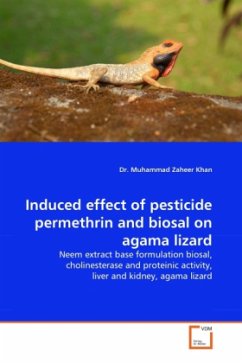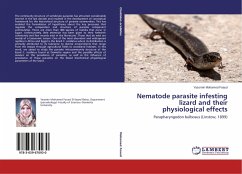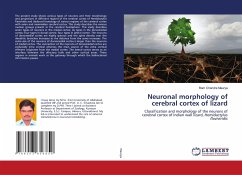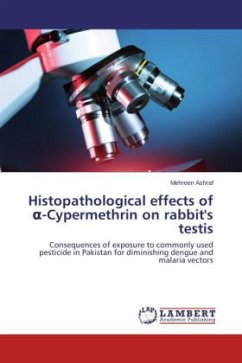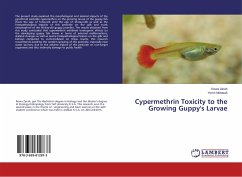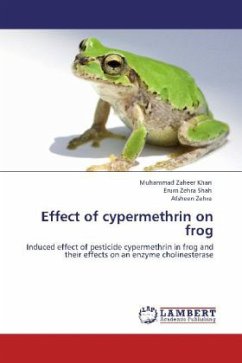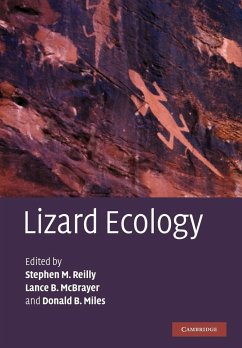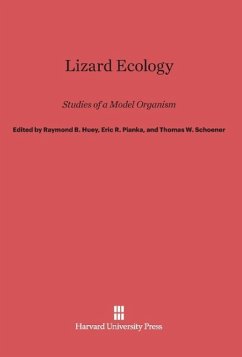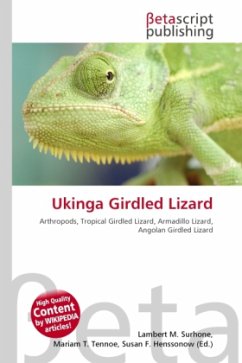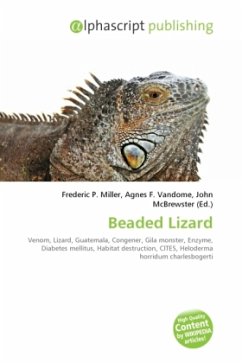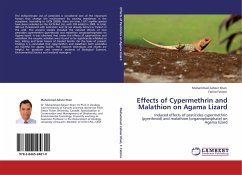
Effects of Cypermethrin and Malathion on Agama Lizard
Induced effects of pesticides cypermethrin (pyrethroid) and malathion (organophosphate) on Agama lizard
Versandkostenfrei!
Versandfertig in 6-10 Tagen
32,99 €
inkl. MwSt.

PAYBACK Punkte
16 °P sammeln!
The indiscriminate use of pesticides is considered one of the important factors that change the environment by causing imbalances in the ecosystem. According to IUCN (2009), there are now 1,677 reptiles species have been included on the IUCN Red List, with 293 added in 2009. In total, 469 are threatened with extinction and 22 are already Extinct or Extinct in the wild. The present studies included the induced effects of two pesticides cypermethrin (pyrethroid) and malathion (organophosphate) on Agama lizard. It was observed that under the effects of cypermethrin and malathion the enzyme activi...
The indiscriminate use of pesticides is considered one of the important factors that change the environment by causing imbalances in the ecosystem. According to IUCN (2009), there are now 1,677 reptiles species have been included on the IUCN Red List, with 293 added in 2009. In total, 469 are threatened with extinction and 22 are already Extinct or Extinct in the wild. The present studies included the induced effects of two pesticides cypermethrin (pyrethroid) and malathion (organophosphate) on Agama lizard. It was observed that under the effects of cypermethrin and malathion the enzyme activities were found to be significantly inhibited in liver, kidney and brain tissues of treated lizards. On the basis of present findings it is concluded that cypermethrin and malathion both pesticides are harmful for agama lizards. The research techniques and results are helpful for graduate and research students of Biological Sciences, Environmental Science and wetland managers.



